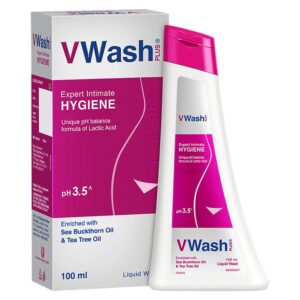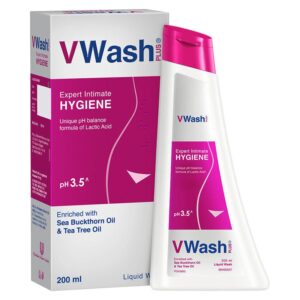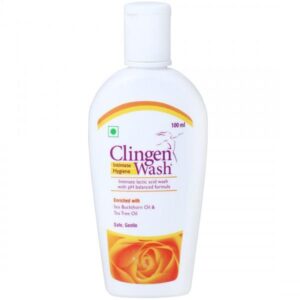LACTIC ACID + SEA BUCKTHORN OIL + TEA TREE OIL
Lactic Acid: Drug: Lactic Acid
Use: Lactic acid is a medication primarily used in skincare and cosmetic products. It is commonly found in chemical peels, moisturizers, and anti-aging formulas. It helps exfoliate the skin, improve its texture, and reduce the appearance of fine lines and wrinkles.
Mechanism of Action: Lactic acid is an alpha hydroxy acid (AHA) that works by loosening the bonds between dead skin cells, allowing them to slough off more easily. It also stimulates the production of collagen and elastin proteins, which are essential for maintaining the skin’s elasticity and firmness.
Dose: The dose of lactic acid depends on the specific product and its intended use. Skincare formulations usually contain lactic acid concentrations ranging from 5% to 15%. It is important to follow the instructions provided on the product packaging and consult a dermatologist if needed.
Side Effects: Lactic acid is generally considered safe when used topically at appropriate concentrations. However, some individuals may experience mild side effects such as redness, tingling, or stinging sensation. These effects are usually temporary and subside with continued use. In rare cases, lactic acid can cause skin irritation, allergic reactions, or increased sensitivity to sunlight. It is advisable to perform a patch test before applying lactic acid products on large areas of the skin.
Note: Lactic acid is different from lactic acidosis, which is a medical condition caused by the buildup of lactic acid in the body. The description above refers to the topical use of lactic acid in skincare products and not its systemic effects.
Sea Buckthorn Oil: Sea Buckthorn Oil is derived from the berries of the sea buckthorn plant (Hippophae rhamnoides). It is commonly used as a dietary supplement due to its potential health benefits. The oil is rich in omega-7 fatty acids, vitamins, and antioxidants.
Sea Buckthorn Oil is believed to have various medicinal properties, including anti-inflammatory, antioxidant, and immune-boosting effects. It is often used to promote healthy skin, improve digestion, enhance cardiovascular health, and support the immune system.
The recommended dosage of Sea Buckthorn Oil varies depending on the specific product and the desired effect. Typically, it is available in the form of capsules or oil, and the dosage may range from 500 mg to 2,000 mg per day. However, it is important to follow the instructions provided by the manufacturer or consult a healthcare professional for the correct dosage.
While Sea Buckthorn Oil is generally considered safe for most people when used in moderation, there are some potential side effects to be aware of. These may include gastrointestinal discomfort, such as diarrhea or stomach cramps, especially when taken in high doses. It may also cause a temporary yellow or orange discoloration of the skin if applied topically.
Individuals who are pregnant, breastfeeding, or have a history of certain medical conditions should exercise caution and consult with a healthcare professional before using Sea Buckthorn Oil. Additionally, it may interact with certain medications, such as anticoagulants or blood pressure medications, so it is important to discuss its use with a healthcare provider if taking any prescription medications.
As with any dietary supplement, it is advisable to purchase Sea Buckthorn Oil from reputable sources and ensure it is of high quality and free from contaminants. It is also important to note that while Sea Buckthorn Oil may offer potential health benefits, more research is needed to fully understand its efficacy and safety.
Tea Tree Oil: Tea Tree Oil is an essential oil derived from the leaves of the Australian native plant, Melaleuca alternifolia. It has long been used in traditional medicine for its antimicrobial and anti-inflammatory properties.
Tea Tree Oil is primarily used topically for various skin conditions. It is often applied to the skin to treat acne, fungal infections (such as athlete’s foot or nail fungus), dandruff, insect bites, and even to control body odor. It can also be found as an ingredient in shampoos, soaps, and lotions.
The mechanism of action of Tea Tree Oil is not fully understood, but it is believed to involve the disruption of the cell membranes of microorganisms, leading to their death. It also has anti-inflammatory effects, which can help reduce redness, swelling, and irritation.
The recommended dose of Tea Tree Oil varies depending on the condition being treated and the concentration of the product being used. It is important to follow the instructions on the product label or consult a healthcare professional for guidance.
While Tea Tree Oil is generally considered safe when used topically, it can cause skin irritation or allergic reactions in some individuals. It is important to perform a patch test on a small area of skin before applying it to larger areas to check for any adverse reactions. In rare cases, it may cause skin dryness, itching, or a burning sensation. If any severe side effects occur, such as severe rash or difficulty breathing, medical attention should be sought immediately.
It is worth noting that Tea Tree Oil should not be ingested as it can be toxic when consumed orally. Pregnant or breastfeeding women should also exercise caution and consult their healthcare provider before using Tea Tree Oil. Overall, it is recommended to use Tea Tree Oil as directed and consult a healthcare professional if there are any concerns or questions about its use.



